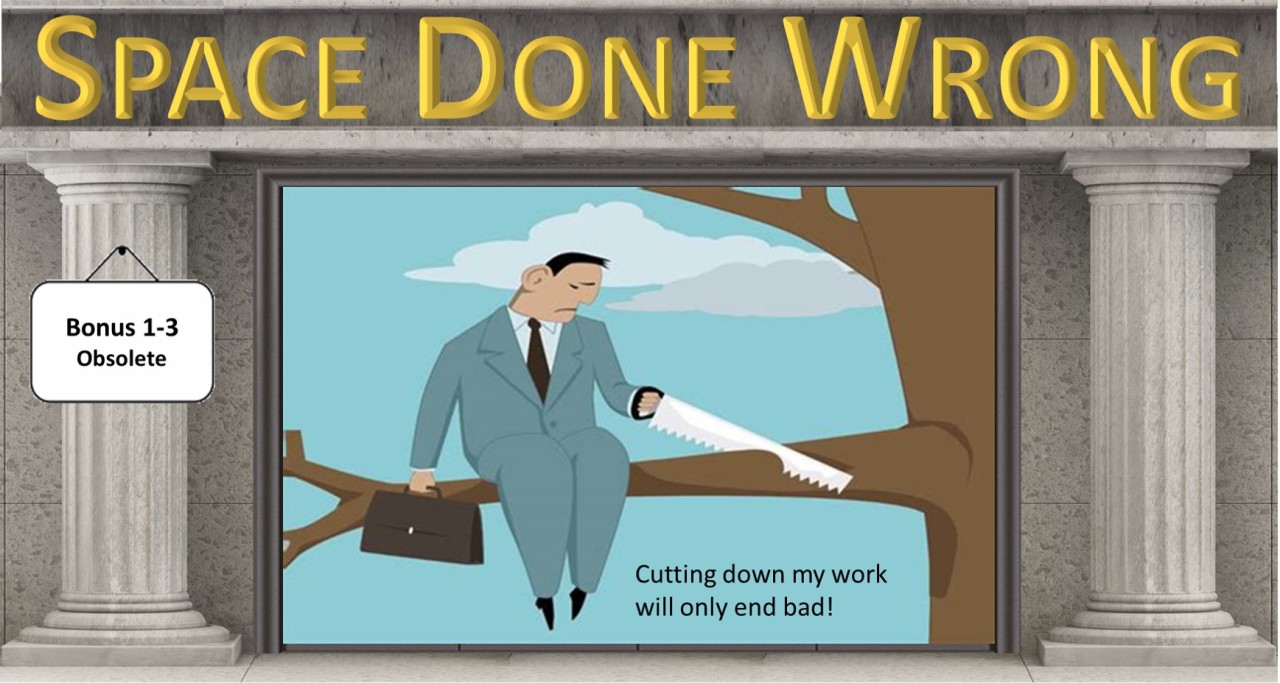Innovation is not for the faint of heart. It is the art of making yourself obsolete. Considering that the space industry is very risk-averse, maybe that is the reason why we have so little of it. This article is a lot about psychology but also about our society. Let us have a closer look.
Innovation requires a positive attitude
I have observed that innovation can be met with one of two reactions: either you take pride in the fact that you can deliver more with less effort, or you fear that if this goes on, then maybe you will be redundant and not be required in the future.

To embrace the first thought, you need to have an optimistic view of the future, whereas the second one is deeply pessimistic.
We all make these types of decisions on every level of our institutions, be it for ourselves, our team, our companies, or the entire society.
What if you are an employee and you innovate?
Ideally, if you innovate, this should be met by your superior with support. This does help not only the bottom line but also the company at large to compete. I wager that you will be much more willing to innovate if you are not expected to carry this innovation on your own back. Ideally, you find a solution to do some tedious work faster. That is appreciated by receiving recognition and emphasizing that you as a person will be on board even if the tasks you previously did are not.
“If your employees know that you need them for the prospects they bring, not for the work they currently do, they will be more willing to innovate.”
What if you are a team leader and you innovate?
This is a tricky one. Imagine that your status among peers is dependent on the number of people in your team. Like a king of old, your power is dependent on the number of subordinates that listen to your command.
Imagine further if you or one of your team members figure out a way that allows your department’s job to be done by two people instead of a hundred. How big is the chance that you will still be sitting at the table with the other leaders of your company afterwards? How will your team take it if you make their jobs obsolete? Will they still be loyal to you? Or, worse for the company, you come up with a solution that will allow another department to do their job more efficiently. How big are the chances that either you or the other department head will implement it?
Like before, team-level innovation will only happen if the team leaders and the team members have the confidence that they mean more to the organization than the means of getting that job done.
“The importance of a leader’s job should not depend on the number of people that are in that group, otherwise to increase or maintain this number will be the priority of the leader.”
What if you are an organization/company and you innovate?
Steve Jobs was allegedly asked why Apple brought out the iPhone since that would surely cannibalize the market of the iPods, which, at that time, was contributing roughly half of their profits. He answered: if somebody should disrupt Apple’s market, it better be Apple.
“If you don’t cannibalize yourself, somebody else will.” – Steve Jobs.

We all know the wisdom of that story. Because of Apple’s iPhone, turnover went from $18B in 2006 to $150B in 2014. The space industry needs to develop a similar mindset. Look beyond what you must do, what you could do. Be the best version of yourself!
Space industry and society
Regardless of whether you want that or not, the space industry is racing towards the “Henry Ford Moment.” In all experience, that will mean we are going to have a drastic disruption in how the industry is run. This is a simple consequence if a satellite factory with 250 employees can build 100x the satellites that an entire industry could build before.

On the plus side, the increased efficiency will allow us to either do much more with the same funds or alternatively achieve our goals at a much lower expenditure. Unfortunately, the road there will be bumpy and not be free of pain.
As a society, we will not do ourselves a favor continuing to pay for structures that have lost their meaning like an enabler thinking ourselves of doing good deeds but only prolonging the suffering of the addict. We better create an environment where each player on every level has the confidence that they mean more than the task they perform right now.
This, however, touches bigger questions than the space industry. We won’t have innovation without the confidence that all of us are better off with it than without. Therefore, we dearly need an optimistic view of the world.
Unfortunately, as individuals, as a society, we have learned that life is a zero-sum game; jobs lost do not come back. And consequently, once you are on the losing side of innovation, society has no need for you.
These things need to be unlearned. Fast.
Concluding remarks and a look beyond
Two things are equally true. Throughout history, innovation has made jobs redundant. Unlike the medieval time, we do not have 90% working as peasants alone. In the process, farming jobs were lost, replaced by the industry, replaced by service jobs. Until today there are about 1.5% of people who work in agriculture. As a result, today’s average person is richer and lives more comfortable than even a medieval ruler.

However, it is equally true that the jobs lost were not totally replaced by the new industries, especially in the last decades. For the first time in history, we are going towards the point where the combined consumption of humanity does not require all-hands-on-deck.
Locally, this was further aggravated by globalization, which helped productivity but created an additional loss of jobs (mainly in industrial countries). This can be truly terrifying for those affected, and it, therefore, needs to be addressed by society, or we will pay the price for the collective fear.
As an alternative and more positive thought, let us look at what we have achieved in the last century.

The progress has been truly astounding. There is enough wealth in society and among humanity at large—enough to make everyone reasonably happy. The sky is the limit, and I hope our industry will contribute to it in a meaningful way. This is, however, a topic for a different day.
Note: this is an article of the series #spacedone wrong. If you haven’t yet, go check out the other articles. The entry point to the series can be found here.


Leave a Reply